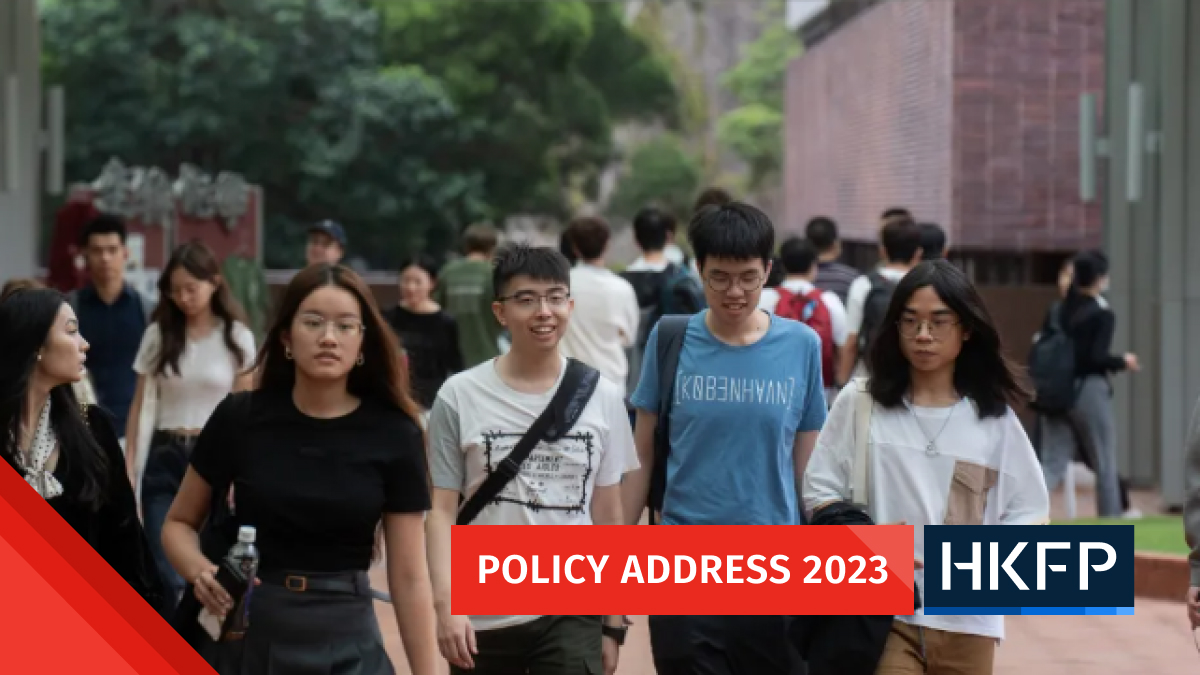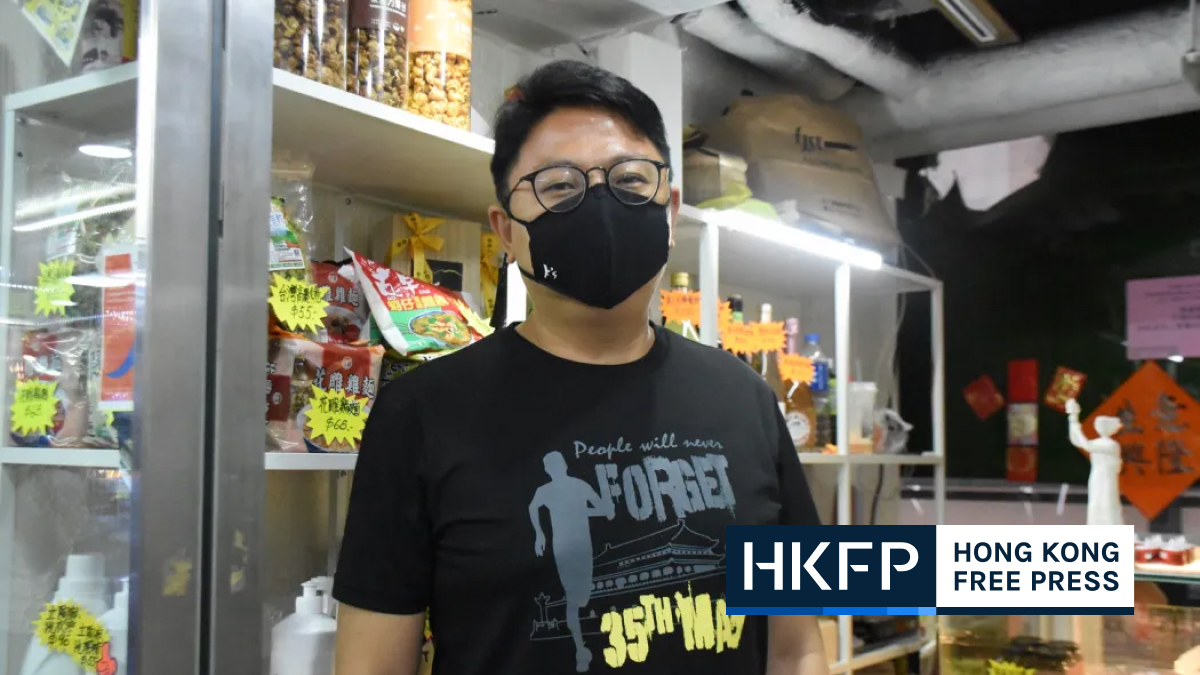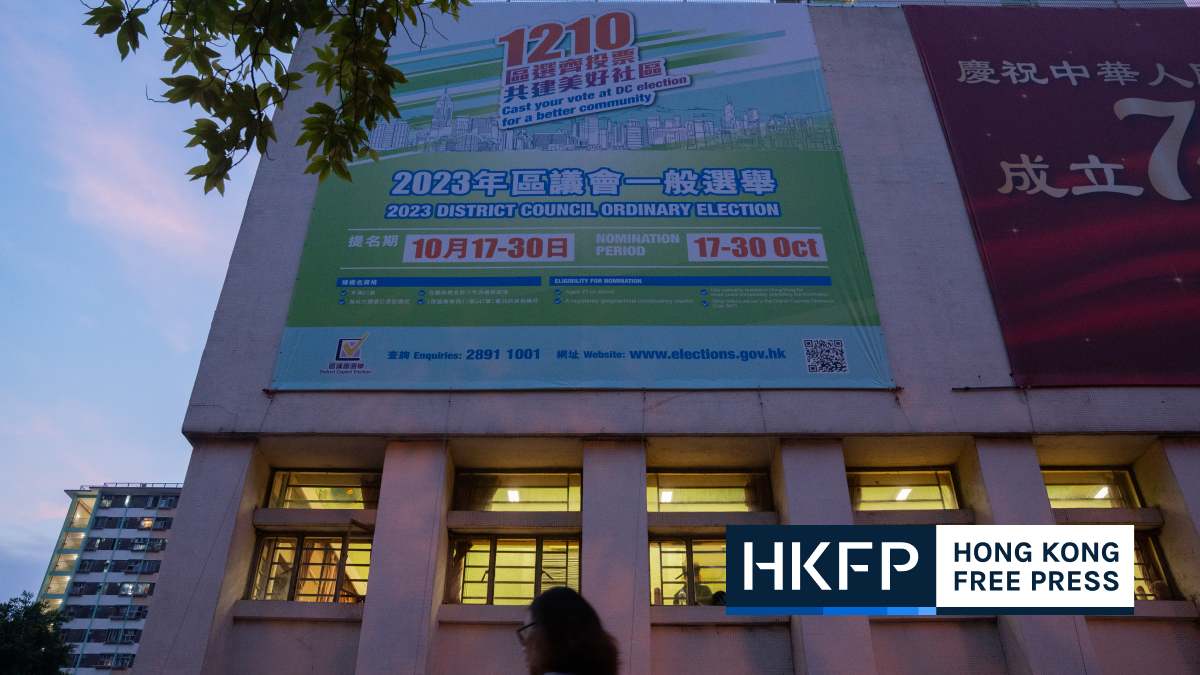Hong Kong should shorten voting hours and allow electors living in mainland China to cast ballots, the city’s largest pro-Beijing party has proposed as part of efforts to “improve“ the city’s electoral system.
Three Legislative Councillors from the pro-establishment DAB presented a report at a press conference on Thursday. Its Chinese title translates as “Proposal to improve electoral arrangements.”

A political revamp imposed by China in March last year, designed to ensure only “patriots” govern Hong Kong, reduced democratic representation in the legislature, tightened control of elections and introduced a pro-Beijing vetting panel to select candidates.
It left the Legislative Council with just one member not identifying as pro-establishment following a LegCo election last December.
The Hong Kong government said the overhaul would ensure the city’s stability and prosperity. But the changes also prompted international condemnation, as it makes it near-impossible for pro-democracy candidates to stand.
Shorter voting time
The DAB said the Hong Kong government should shorten the voting time in Legislative Council elections to 8 a.m. to 6 p.m., so that the results could be confirmed and released earlier. Voting last year was from 8:30 a.m. to 10:30 p.m.
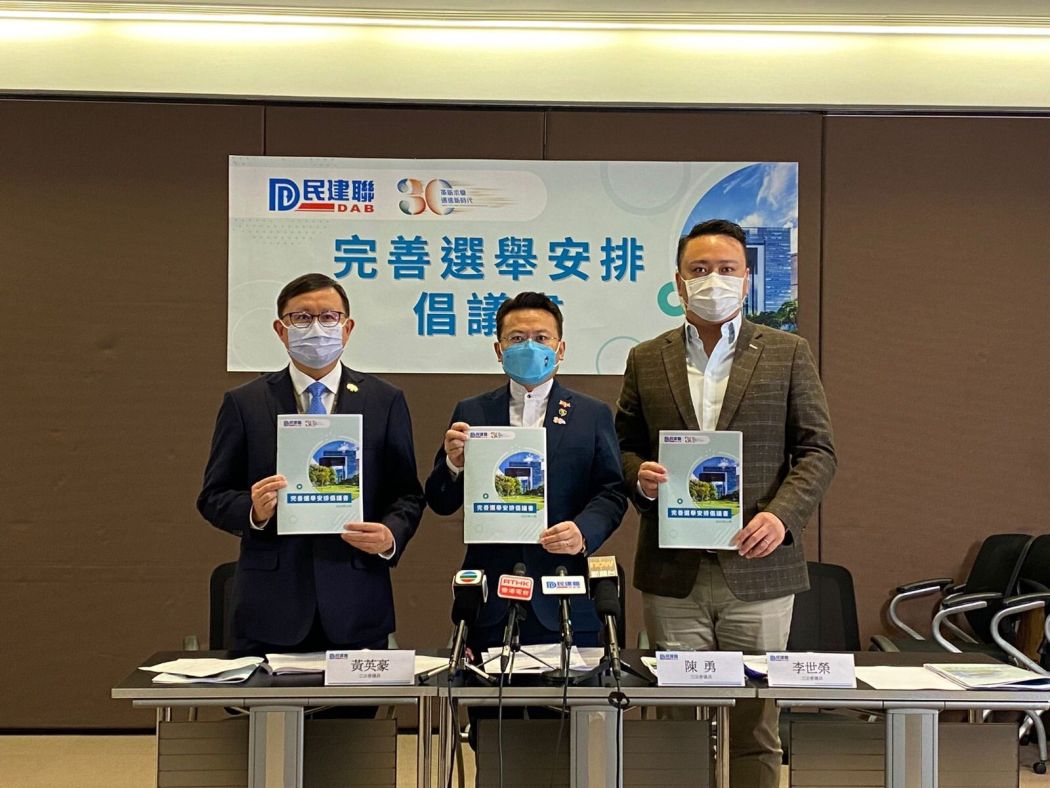
Priority should also be given to civil servant voters who have to work, said the DAB, and people should be allowed to choose their own voting stations so that they can select one close to their workplace, said lawmaker Brave Chan.
Internal selection
The Electoral Affairs Commission should also not interfere with internal selection processes within political parties, the pro-Beijing group suggested.
When asked if the proposal would be in conflict with the national security case against 47 pro-democracy political figures, who were prosecuted after they organised or took part in an unofficial primary election in 2020, legislator Kennedy Wong said the primary in question was not an internal process.
“Because there is no political party law in Hong Kong, parties are essentially registered societies or limited companies, and there is no problem to hold any internal selection mechanisms…” said Wong.
“The cases in legal procedure at the moment do not concern a purely internal selection.”
Voter registration
The DAB also proposed to have Hong Kong permanent residents automatically registered as voters, and said the government should scrap the requirement that voters have to “ordinarily reside in Hong Kong.”
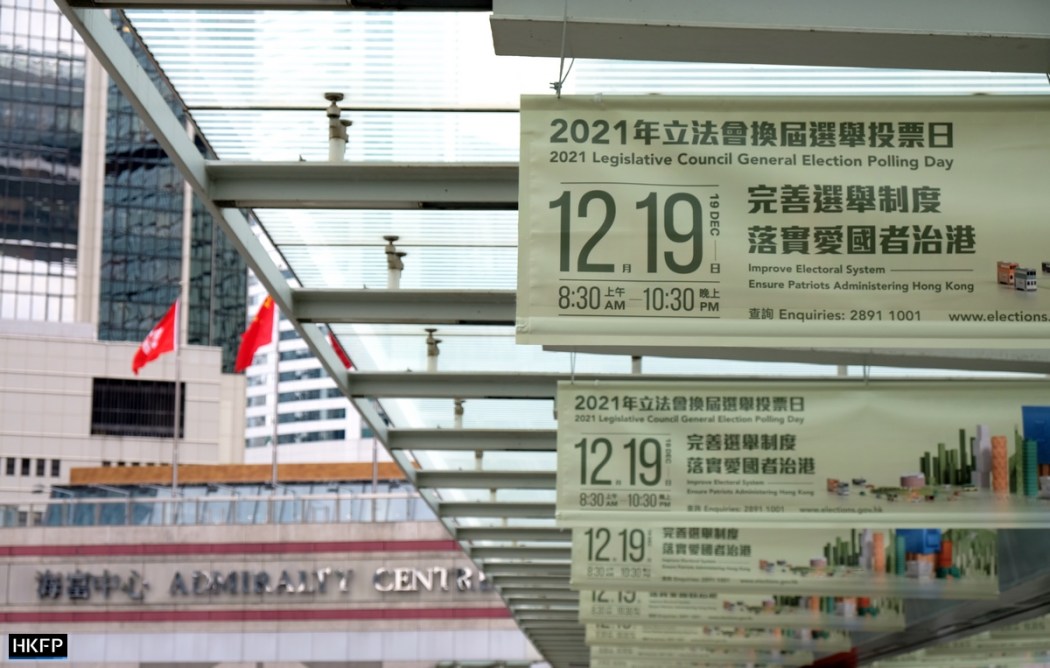
Last year, the Hong Kong government set up polling stations at the city’s borders with mainland China for residents who were not able to return to the city to vote due to strict Covid-19 travel restrictions.
The administration should also consider setting up polling stations in mainland China in the long run, the DAB said in its proposals.
When asked why the party did not propose allowing overseas voting, Wong said that it was because Hong Kong’s laws were not applicable overseas, and that setting up mainland voting stations would be the first step.
Support HKFP | Policies & Ethics | Error/typo? | Contact Us | Newsletter | Transparency & Annual Report | Apps
Help safeguard press freedom & keep HKFP free for all readers by supporting our team

LATEST FROM HKFP
HKFP has an impartial stance, transparent funding, and balanced coverage guided by an Ethics Code and Corrections Policy.
Support press freedom & help us surpass 1,000 monthly Patrons: 100% independent, governed by an ethics code & not-for-profit.


